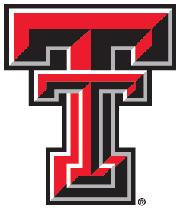FOR IMMEDIATE RELEASE
DATE: Sept. 8, 2016
CONTACT: Heidi Toth, heidi.toth@ttu.edu
(806) 742-2136
Red Raiders Go to Washington: Doctoral Students Win STEM Education Awards
Richard Velasco and Janice Mak, both students in the Global PRiSE program, are among the 213 educators honored for 2014 and 2015.
Two Texas Tech University doctoral students today received the highest honor given to teachers in the United States.
Janice Mak and Richard Velasco, both students in the Global Pragmatic Researchers in Science Education (Global PRiSE) program in the College of Education, are in Washington, D.C., this week (Sept. 7-9) to receive Presidential Awards for Excellence in Math and Science Teaching.
Receiving the award was the culmination of two years of applying, answering questions and waiting. Two math or science teachers from each state receive the award each year, with secondary and elementary school teachers eligible in alternate years. The U.S. territories are grouped together as one state, with the exception of Puerto Rico.
“The Presidential Award is one of the most prestigious honors for American teachers of science and mathematics, so we are very proud of the outstanding accomplishments of these exceptional educators who have chosen Texas Tech for advanced studies,” said Walter Smith, the Helen Devitt Jones Professor of Education.
Velasco, who taught math for more than eight years in Guam, called the wait agonizing. He applied in April 2014 and found out he won in the summer of 2016. In that time he and his wife left Guam and moved to Washington.
“Literally just one week after we actually moved here, I received the official letter of selection via email while in the car with my wife as we were about to eat at a restaurant,” Velasco said. “We both erupted in tears of joy. It was quite overwhelming, as I felt truly honored and grateful. At the same time, I felt a huge sense of relief that the agonizing wait was finally over.”
There also was a tinge of sadness.
“It is little bittersweet, as I won the award to represent Guam, but unfortunately I’m not there to celebrate with my family, friends, colleagues, district and my students who were all integral in helping me achieve this.”
The award recognizes educators who develop and use high-quality classroom programs that help students learn and appreciate math and science. The National Science Foundation sponsors the award. Nominees must answer a number of questions about their teaching and send a video of themselves teaching a STEM-related lesson.
Until this year, Mak was a STEM teacher at Explorer Middle School in Phoenix and an instructional coach for the district’s elementary school gifted teachers. This year she has moved into administration. She also has been nominated for the Arizona State Board of Education and is awaiting confirmation from the Arizona State Senate.
“This award affirms what I do each day by engaging my students in learning that inspires them to question, observe, analyze and reflect in order to produce innovative solutions,” Mak said. “It honors the mentors, colleagues and students who have inspired, guided and supported me to become the educator I am today.”
Their passion for global STEM education led both Mak and Velasco to Texas Tech for their doctoral degrees. Velasco hopes to use his research to help schools in Guam and Micronesia integrate STEM education into their curricula.
“Having been born and raised in Guam, and having many other students from the Micronesia region, my heart has grown fond of reaching out to that specific community,” he said.
Mak, who is starting her fourth year in the program, said she wanted a focus on pragmatic research that was focused on helping teachers.
“Having personally spent more than 10 years abroad, I could not have been more pleased with the emphasis on global collaboration in the program,” Mak said. “The hybrid nature of the program provides me with the support of being in a cohort and allows me to balance my coursework with my professional work, which in turns allows me to bring a unique lens and perspective to my research.”
About the Global PRiSE program
The Global Pragmatic Researchers in Science Education doctorate program is designed for students who want to specialize in STEM education with a global perspective. The coursework is primarily done online; students come to campus for two weeks every summer for the duration of the program.
Find Texas Tech news, experts and story ideas at Texas Tech Today Media Resources or follow us on Twitter.
CONTACT: Walter Smith, professor, Department of Curriculum and Instruction, College of Education, Texas Tech University, (806) 834-3799 or walter.smith@ttu.edu





